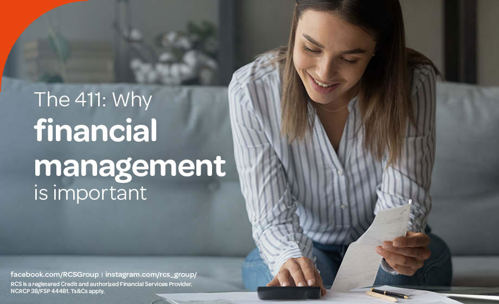Why Financial Management is Important
12 AUGUST 2023
Having too much month at the end of our money starts to feel very exhausting the older we get and incur more responsibilities. Without the necessary financial management insights and skills, it is almost impossible to live in financial freedom. This article aims to give readers working knowledge of financial management and explain why it’s necessary. We intend to highlight the importance of setting financial goals and devising a plan on how to achieve them. Being intentional about money is a very solid way to financial freedom.
Without the necessary financial management insights and skills, it is almost impossible to live in financial freedom. This article aims to give readers working knowledge of financial management and explain why it’s necessary. We intend to highlight the importance of setting financial goals and devising a plan on how to achieve them. Being intentional about money is a very solid way to financial freedom.
What is Personal Financial Management?
Managing your own finances may sound super complicated if you’re not exactly sure where to start. All it really comes down to is having a plan and sticking to it.
Personal financial management is basically how you manage and organize your financial operations, including investments, savings, spending, income production, and other financial endeavors. When you’ve got that on lock, you will have created a financial plan or budget that describes your money strategy.
Personal financial skills are necessary because without them, you might spend your whole life labouring for money and never really seeing where it’s going. Learning all there is to know about money and how to run your own finances puts you on a path to success.
So the big question is HOW?
Without sounding like just another self-help book, here’s a working list with which you can begin your journey.
1. Track your spending.
Your spending habits likely have room for improvement if you don't know exactly where your money is going every month. Spending awareness is the first step to better money management. Be aware of how much you spend on things like restaurants, entertainment, and even your daily cup of coffee. Once you've learned about these tendencies, it's time to devise a strategy for improvement.
2. Create a realistic budget.
I bet we’re all guilty of transferring money to a savings account and then back again a few days later. There's no point in setting a strict budget, like saying you’re never going out to eat when you currently order takeaways five times a week. Create a realistic budget that fits your lifestyle and how you spend money, then stick to it. You should think of a budget as a way to get you to do better.
3. Build up your Savings.
Create an emergency fund that you can dip in when a need arises. It doesn't matter how much money you put in, because this fund can help avoid risky situations where you have to borrow money at high-interest rates or can't pay your bills on time.
4. Cut back on recurring charges.
You don’t need to be subscribed to every single music service, or watching service. Revisit those small charges that go off every month, because they can quickly add up.
5. Save for those big purchases.
Loans and debt can be useful when you need to buy a house or a car. But for other big purchases, like a couch or washing machine, cash is the safest and cheapest way to buy. When you buy something with cash, you don't have to pay interest and build up a debt that takes months or years to pay off.
6. Find out about investment opportunities.
Even if you don't have a lot of money to invest, small contributions to investment accounts can help you use your money to make more money.
This isn’t an exhaustive list, but the point is that changing your personal behaviours is the first step in improving your financial situation. If you stick with your plan, you'll make a habit of money management skills that will serve you for the rest of your life, and you'll have extra money in your wallet while you're at it.



